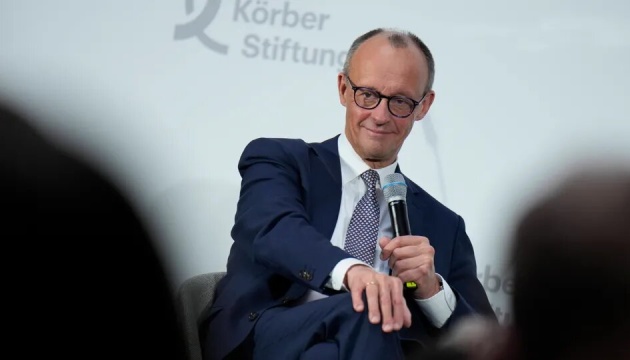Mertz: Putin is dragging out the war, waiting for a favorable moment for negotiations
3 September 19:23
German Chancellor Friedrich Merz has said that Russian dictator Vladimir Putin currently has no reason to end the war against Ukraine or sign a peace agreement. He said this in an interview with the Sat.1 TV channel, published on September 2 on YouTube, "Komersant Ukrainian" reports.
According to Mertz, Putin will only negotiate with Kyiv if it brings him personal benefits.
“There is no reason to believe Putin on any issue. He will only negotiate when he benefits from it,” the chancellor said.
Merz emphasized that the Kremlin currently sees the sense in continuing the war, as it preserves territorial gains and closely monitors political processes in the West.
“Putin is watching the discussions in Europe and the United States, he sees how US President Donald Trump behaves. He sees how the leaders of other countries, in particular at the conference in Shanghai, treat him,” the German chancellor explained.
According to him, under the current circumstances, the Russian dictator has no incentive to agree to a ceasefire or peace treaty. The only way to force him to change his position, Merz said, is through economic pressure.
“We must create such an incentive ourselves. It will be difficult by military means, but economically it is possible. We need to destroy Russia’s ability to support the military economy. I call this economic exhaustion, which we must achieve, for example, by imposing duties on those who are still actively trading with Russia,” he summarized.
Germany remains one of Ukraine’s key partners in countering Russian aggression.
Since the beginning of the full-scale invasion, Berlin has provided Kyiv with billions of euros worth of military aid, including IRIS-T air defense systems, Leopard 2 tanks, Marder infantry fighting vehicles, and artillery.
Chancellor Friedrich Merz has repeatedly emphasized that there will be no peace in Europe without the Kremlin’s defeat. At the same time, Germany is debating the extent of its support for Ukraine and the need to put pressure on Russia through new economic sanctions.









